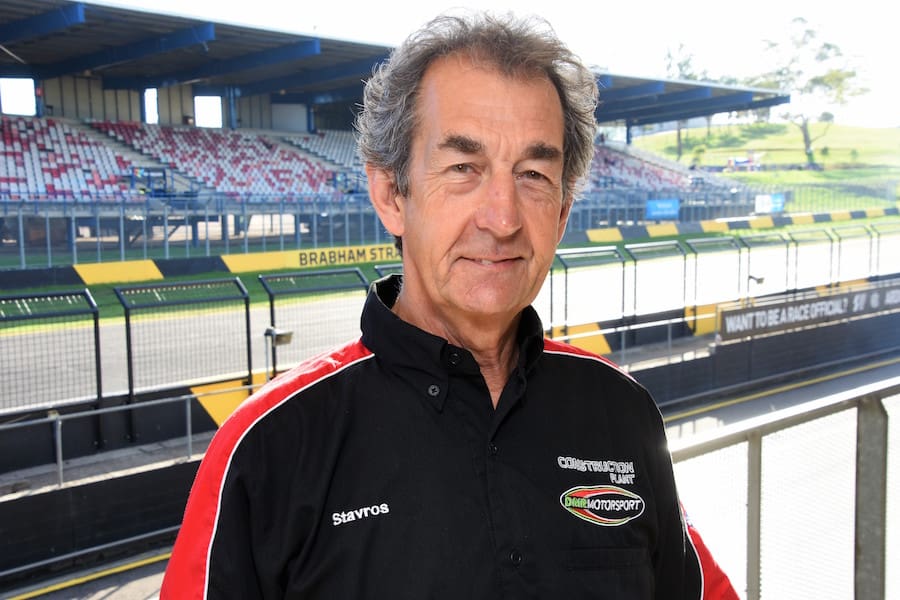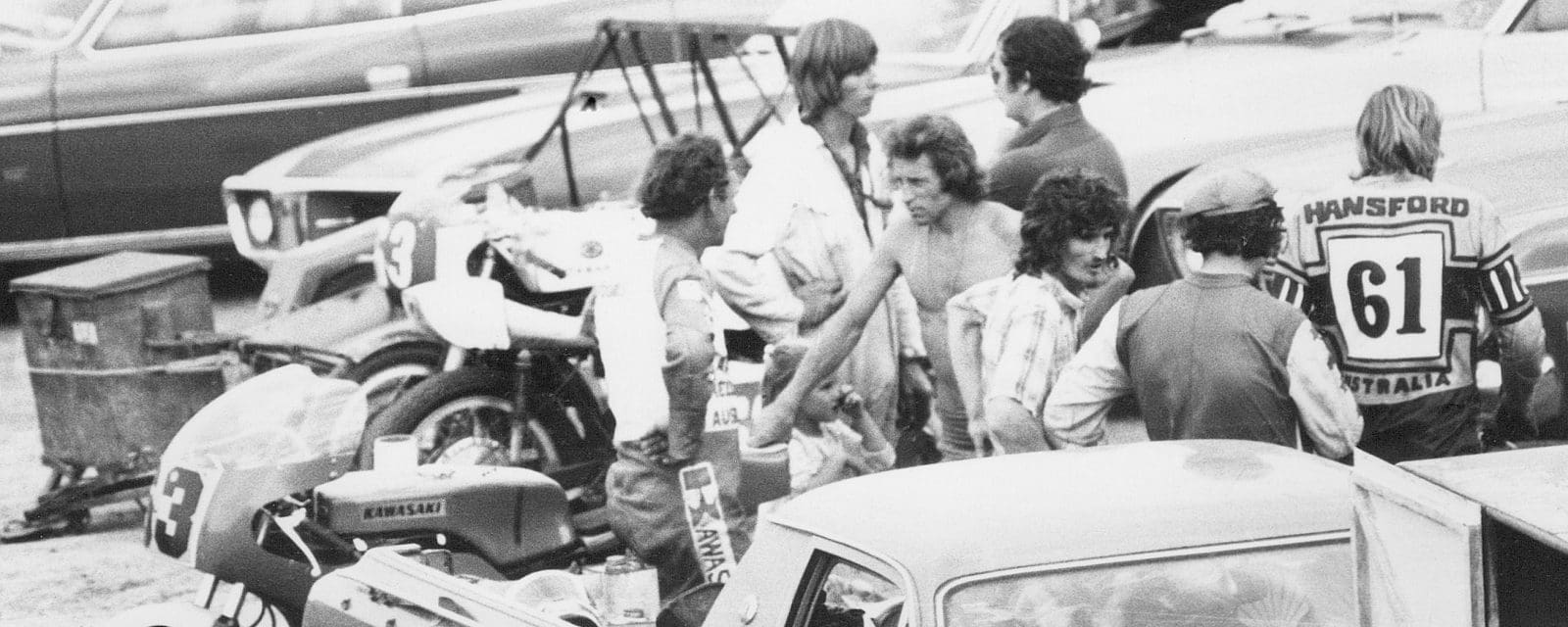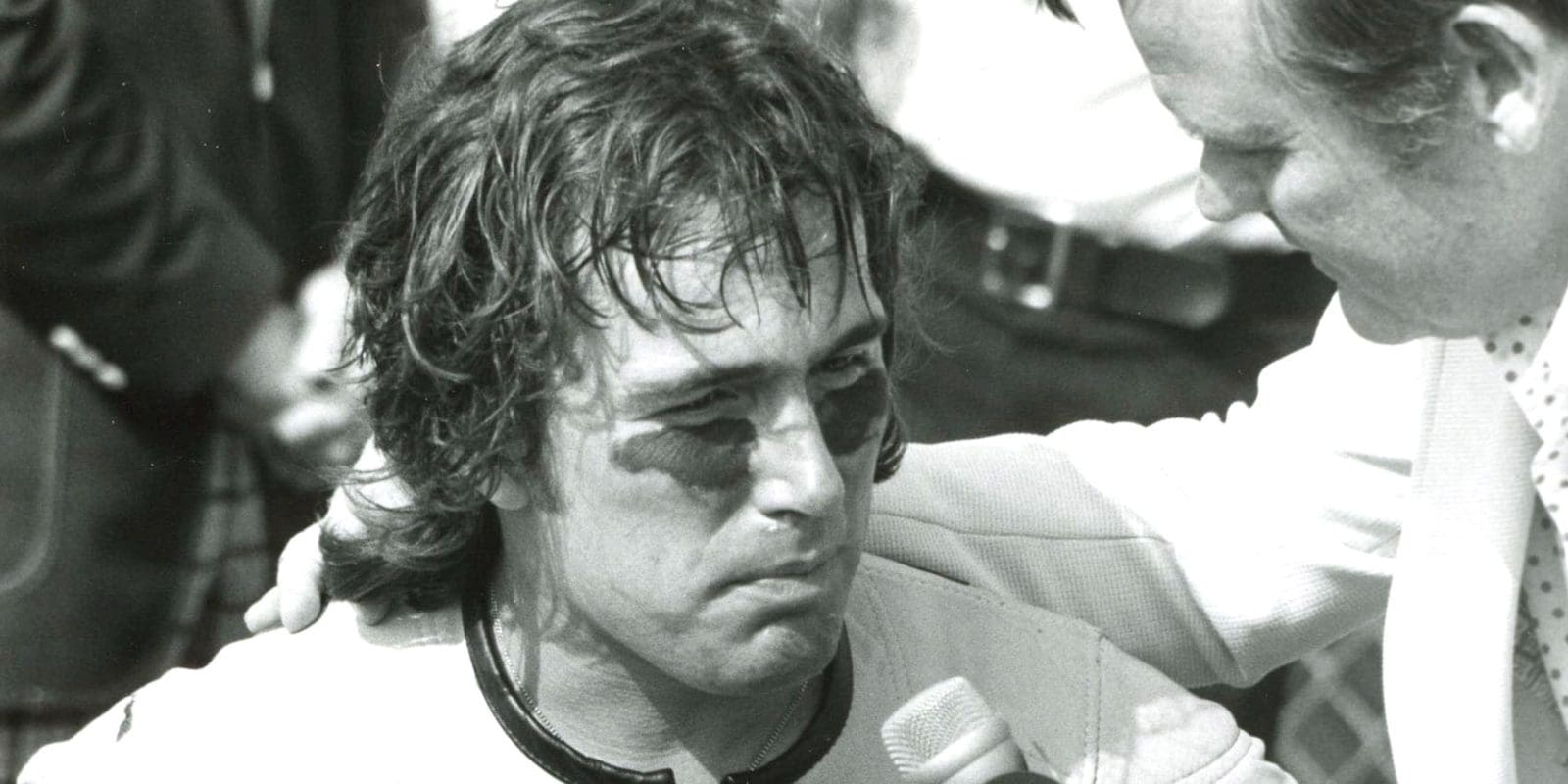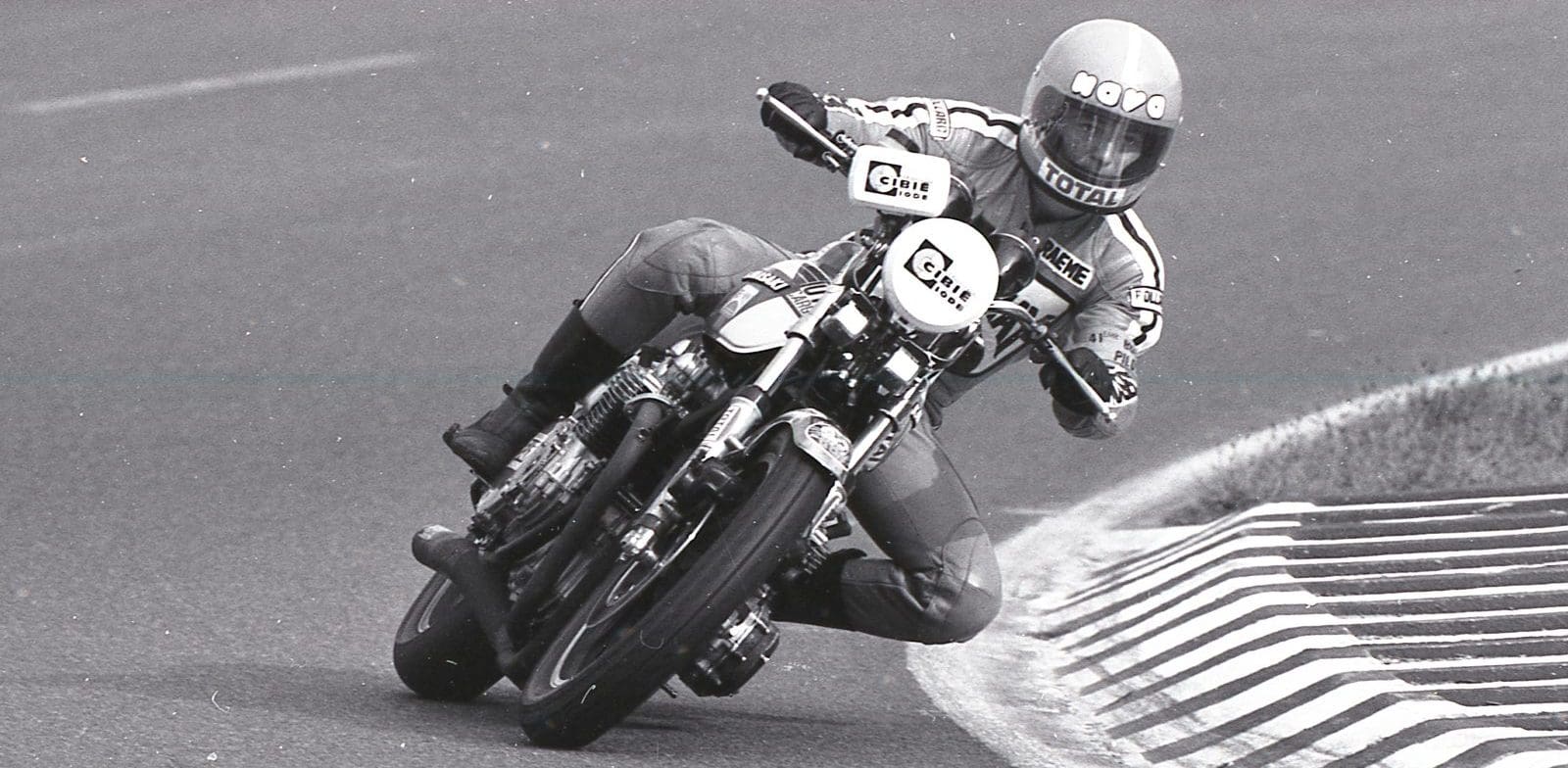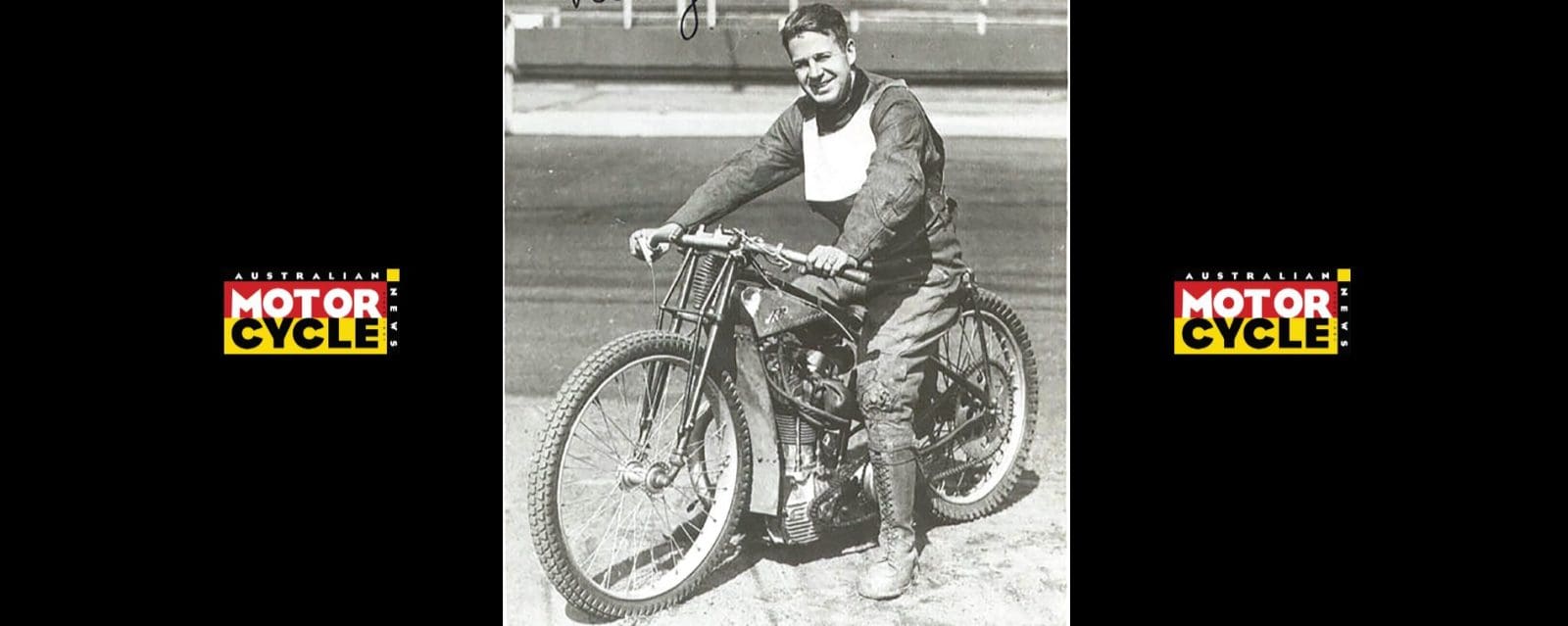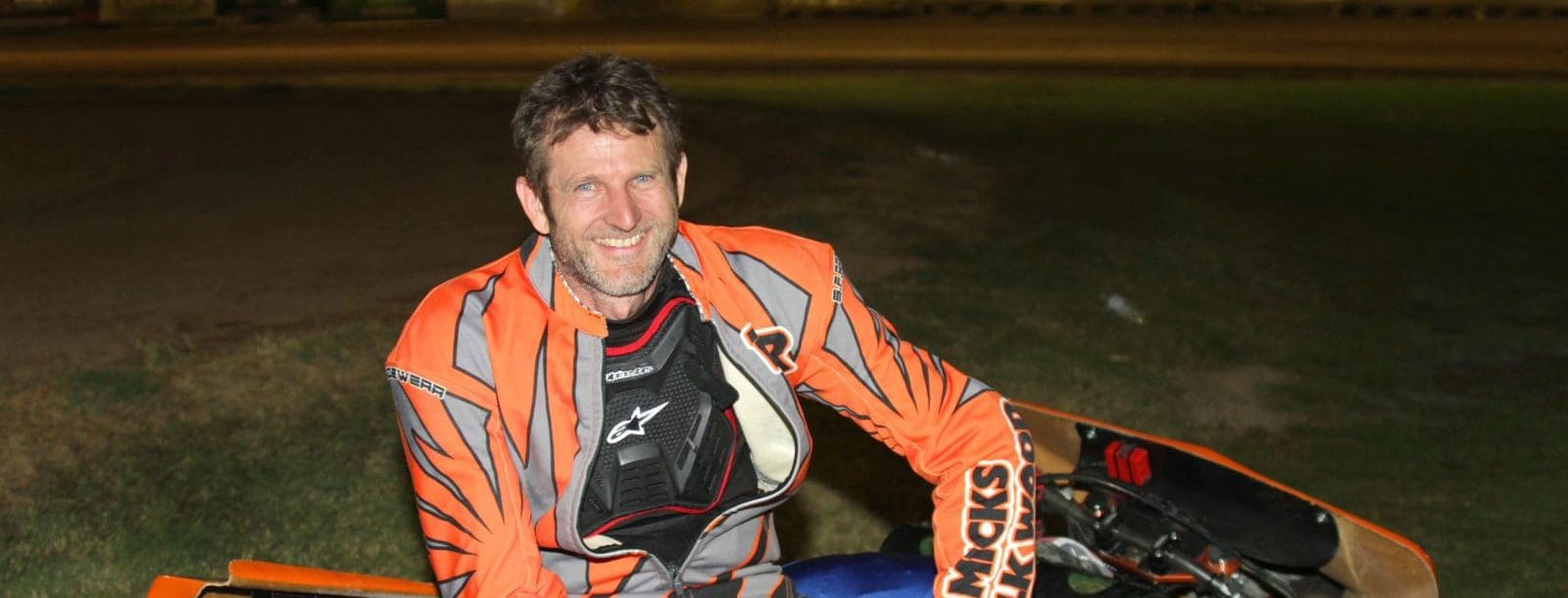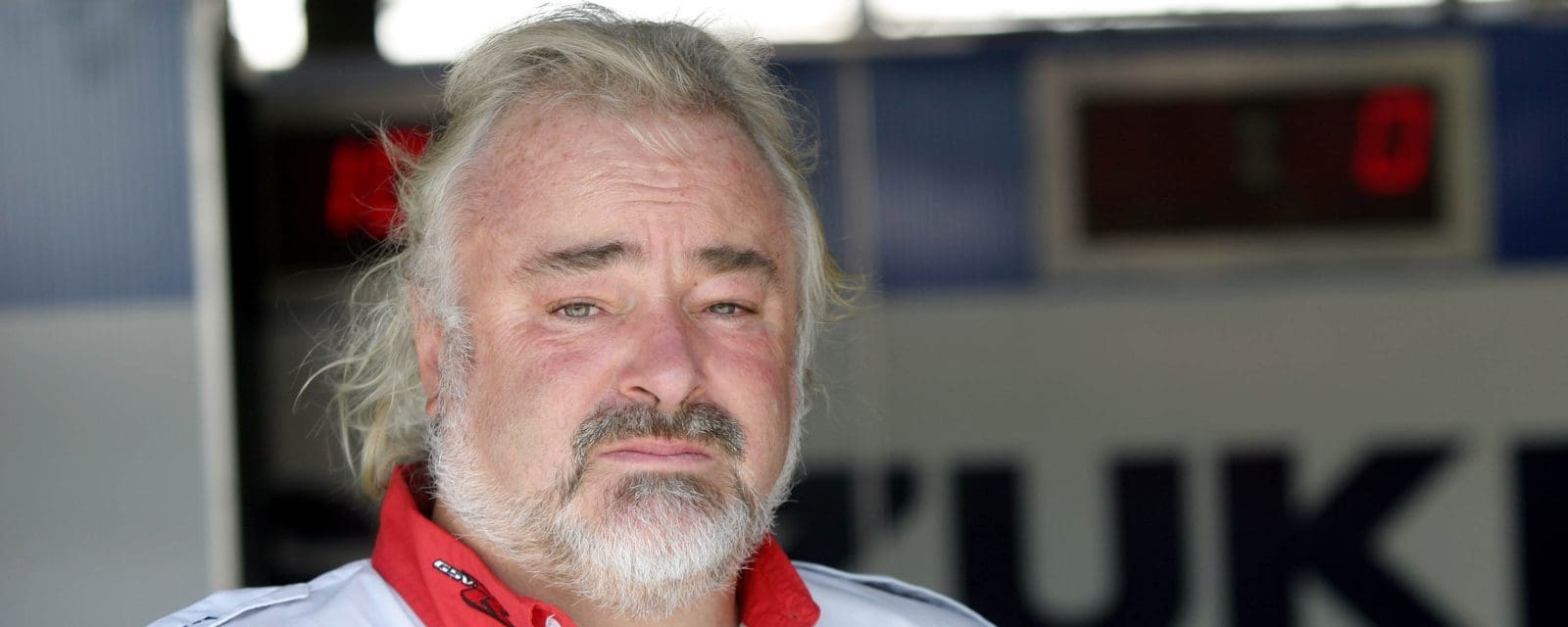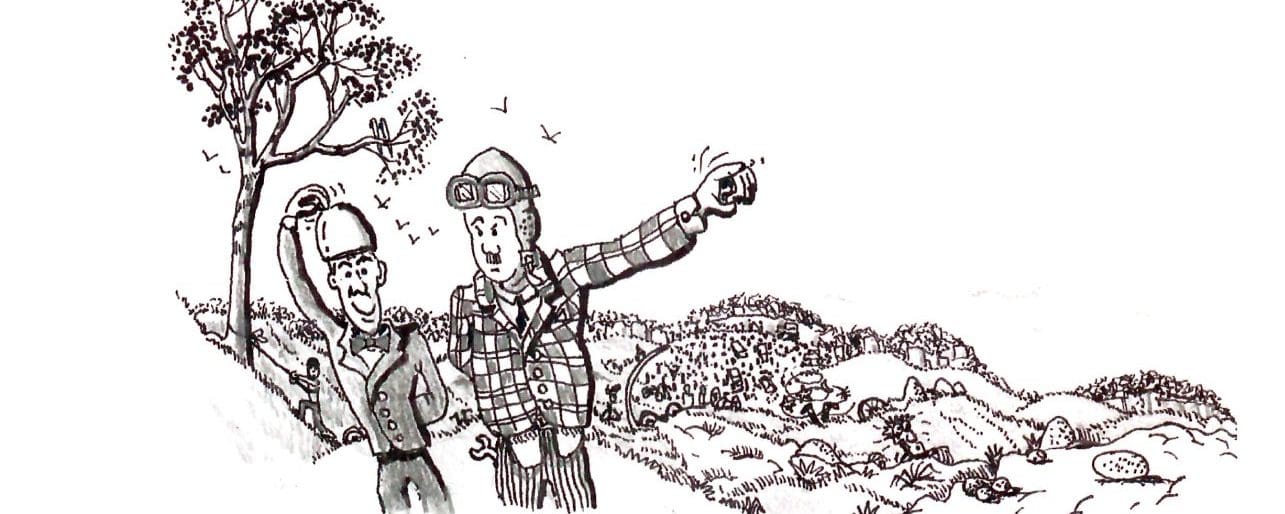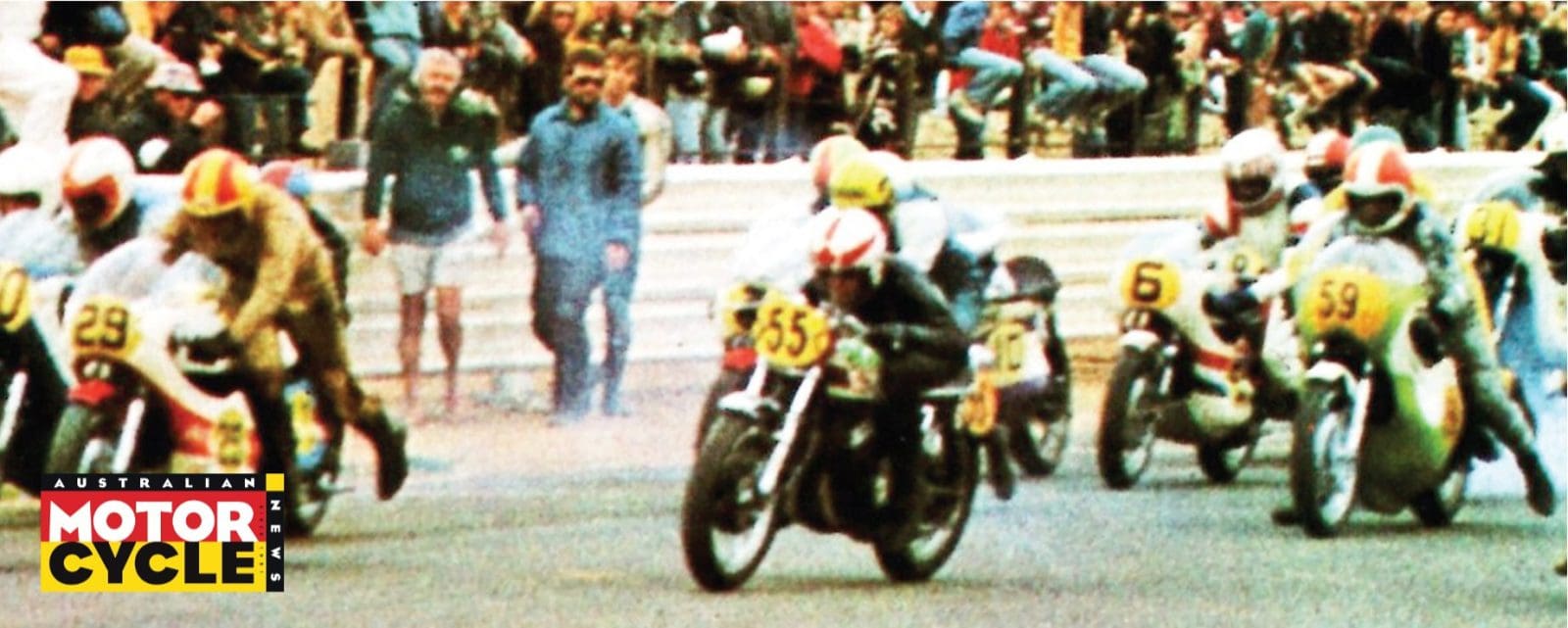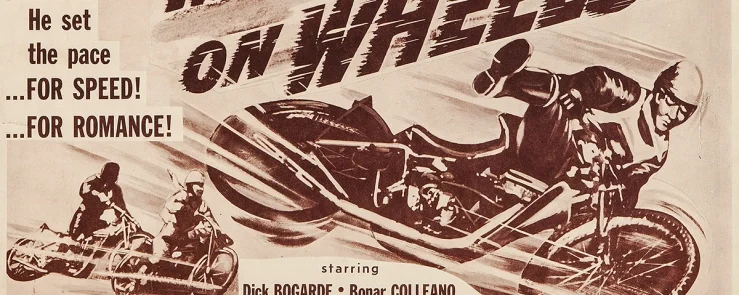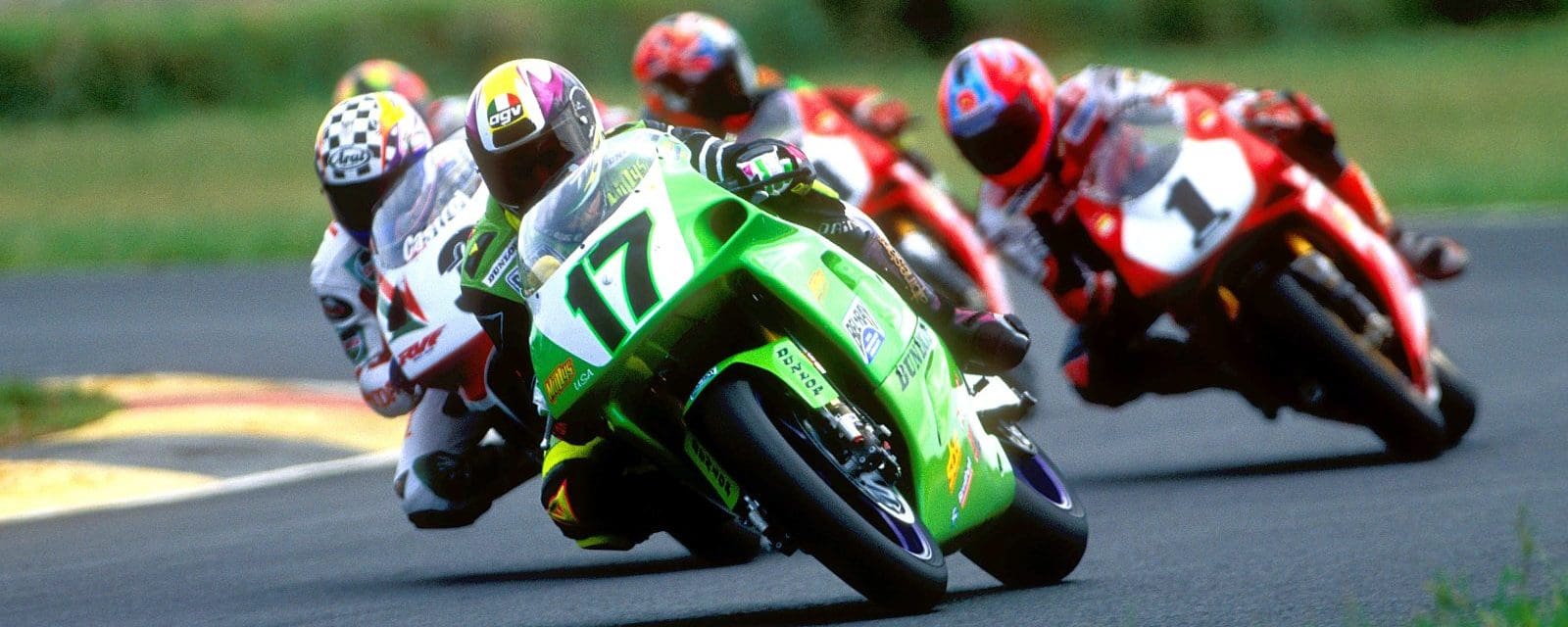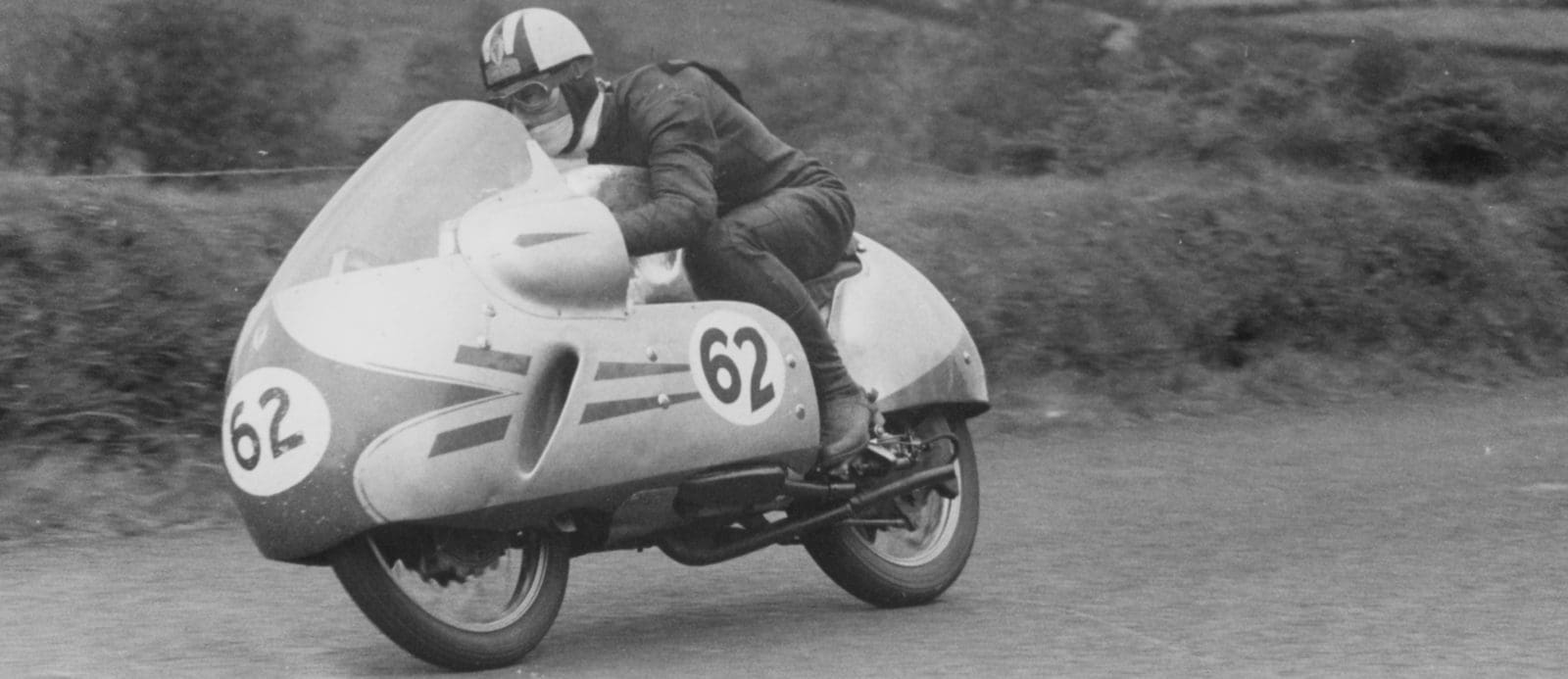Steve Parrish quips that he hasn’t had a real job for 43 years. These days, he’s a commentator, raconteur and author – co-writing a biography of his great mate Barry Sheene and about to launch his story, titled The Parrish Times. He delights in riding Grand Prix 500s and catching up with former competitors at historic meetings.
In Australia for the International Festival of Speed at Sydney Motorsport Park, riding bikes belonging to Tom Dermody and Stuart Avant, he made a side trip to Queensland to visit Barry’s kids, Stephanie and Freddie Sheene, Kork Ballington and Mick Doohan.
“I am still living the dream, doing all things connected with motorcycle racing,” he says. In Britain, his gigs include hosting award evenings, TV commentary, track-day tuition, product launches and his theatre shows. He’s made a living from the sport since he was invited to join the Suzuki Great Britain team in 1977, alongside Sheene and America’s Pat Hennen
“It’s a precarious occupation being a motorcycle racer, because you never know when you’re gonna end up with a broken leg or worse, so I’ve led my life one year to the next. I ran the Loctite Yamaha team for five years and did truck racing for 11 years for Mercedes Team Germany, winning five world titles and many British titles. You’re only as good as your last race or last commentary, so I guess I’ve pretty much bumbled my way through.”
Interestingly, Parrish reckons motorcycle racing was a better preparation for truck racing than car racing, which was the background for many of his rivals.
“There’s a real affinity between motorcycles and trucks. It sounds stupid, but a motorcycle needs coaxing; it doesn’t change direction quickly. It has a lot of kinetic energy and gyroscopic effect, and so you have to feed a motorcycle, being very smooth and a truck is just the same. You had to get into a corner nice and early, keep it smooth and keep the power smooth.”
As a school boy, Parrish’s racing heroes were Mike Hailwood and Phil Read, and then he used to go to watch Percy Tait and John Cooper. “And in the latear years, Barry Sheene. He started five years before I did. I didn’t start racing until 18 or 19, when I’d saved enough money for a bike. But Barry was my biggest influence, because he was my teammate when I signed with Suzuki and was sort of my mentor. He helped me a great deal. I’d never been abroad until I went to the Venezuelan Grand Prix in 1977, so it was a bit of an eye opener.”
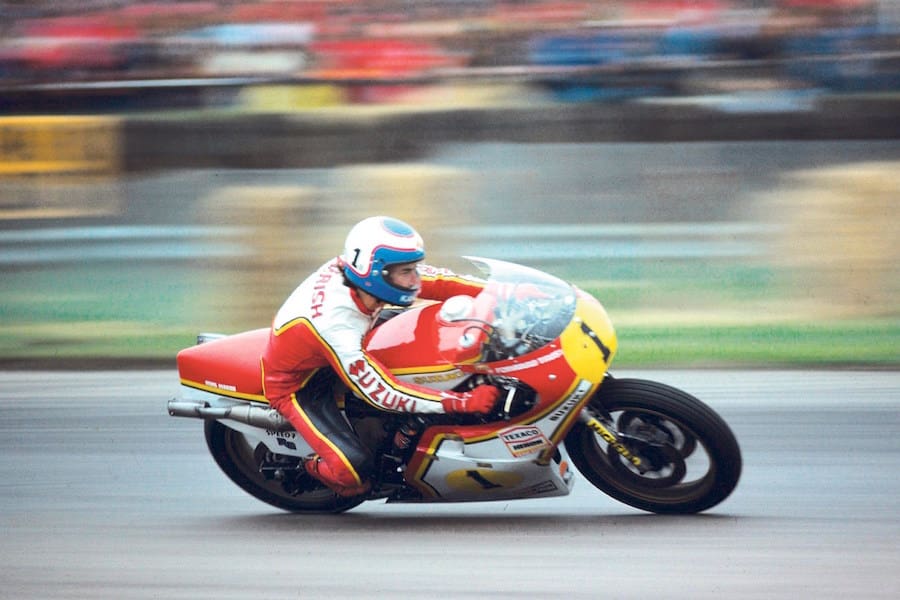
Parrish had two Suzukis in 1977, a new RG500 and one of Sheene’s 1976 works bikes.
He rates the RG500 as his favourite racing machine. “I did my first GP on an RG500 Mark I and it helped me win the British championship in 1976. In ’77, I came close to winning the British Grand Prix on Barry’s ’76 bike, which was probably as a good a bike as I ever rode. I crashed with one lap to go while holding a three-second lead, so it was rather disappointing, but there you go.
“I came flying around the corner for the start of the last lap, expecting to see my pit board chalked out ‘last lap, +3’. But it was Barry and it said ‘Gas it, wanker’. To this day I look back and I know I had a big grin. I was already thinking about the prize money and the accolades. That thought lasted about five seconds, until I got to turn one and it started drizzling …Front brake went on, tipped in and that was it. Pat Hennen went on to win the race, so it was disappointing in lots of ways. One, I didn’t win it. Two, Pat did and you always want to beat your teammate. And then I got fired for doing it, at the end of that year.”
Parrish was fifth in the world 500 championship that year, his best GP season finish. In 1978, he was British ACU 500 Gold Star Champion and in 1979 won Britain’s Shell Sport 500 Championship.
Well known for his practical jokes and even his car’s number plates, which have over the years included 1 69 4 SP and PEN 15.
“But there is a serious side,” he says. I am sort of anal about my timings and preparation, which is very much part of motorcycle racing. I learned in the early days that nobody waits for you; the race starts at 12 o’clock and you’ve got to be ready. You need a good crew around you and you have to be prepared, as well as having the passion. The three Ps, planning, preparation and passion, are very, very important to being a motorcycle racer and in life I guess. It’s easy to get slack and I’d like to think I haven’t.”
By DON COX
